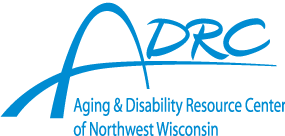Caregiver 101
What is a Caregiver?
A caregiver is a person who helps an individual with activities of daily living. Caregivers most commonly assist with impairments related to old age, disability, or other health condition. A caregiver might be paid, or unpaid, and can be a professional, family member, or member of a person’s support network.
What Do Caregivers Do?
Caregivers do many things that vary based on the needs of the care recipient, and they might change over time! Some examples are:
-
- Offer transportation to appointments
- Manage medications, adaptive equipment, and/or medical conditions
- Communicate with health care professionals
- Advocate for them with service providers or agencies
- Assist with mobility difficulties
- Help with self-care tasks such as changing, bathing, oral hygiene, etc.
- Complete or assist with completing household upkeep
- Run errands and/or shop
- Manage finances and legal documents
- Prepare and cook meals
If you do any of the above for somebody else, you are probably a caretaker!
Caregiving by the Numbers
The Family Caregiver Alliance reports that as of 2023, there were 580,000 informal caregivers in the state of Wisconsin. Of those receiving care, 10.1% were disabled individuals between 18-64 years old, while 27.5% were disabled adults 65+ years of age.
United States Centers for Disease Control and Prevention statistics show that one in three caregivers (31.3%), provided 20 or more hours per week of care and over half (53.8%) have given care or assistance for 24 months or more.
A 2023 survey conducted by AARP found that “82% of caregivers say the role gives them a sense of purpose in life, and 81% say it makes them feel good about themselves” but also found that “more than half (56%) of caregivers report that the role makes it difficult for them to care for their own mental health, and 41% report being lonely.”
Caregiver Resources
Click a resource to be redirectedAARP Caregiving Resources
AARP is the nation’s largest nonprofit, nonpartisan organization dedicated to empowering Americans 50 and older to choose how they live as they age. Their website offers an assortment of information and tools for caregivers at all stages of their journey on a variety of topics.
Burnett Support Group
This support group meets the 1st Thursday of Each Month at 10:00am until 11:30am
Bethany Lutheran Church
24096 1st Ave. Siren, WI
Family Caregiver Alliance
Services offered by Family Caregiver Alliance include assessment, care planning, direct care skills, wellness programs, respite services, and legal/financial consultation vouchers. Ongoing support is available with FCA CareNav™, also now on a digital service platform. They specialize in family caregivers of adults with physical and cognitive impairments, such as Parkinson’s, stroke, Alzheimer’s and other types of dementia.
Alzheimer's Family and Caregiver Support Program
The Alzheimer’s Family and Caregiver Support Program (AFCSP) has been helping Wisconsin families since 1985. The Wisconsin legislature created the program in response to the growing number of families caring for loved ones at home with irreversible dementia.
Polk Support Groups
Dresser support group meets the 3rd Tuesday of each month at 2:00pm to 3:30pm.
Peace Lutheran Church
2355 Clark Rd. Dresser, WI
Amery support group meets the 1st Wednesday of each month at 10:00am to 11:30am.
Amery Senior & Community Center
608 Harriman Ave S. Amery, WI
Wisconsin Family Caregiver Support Programs
Wisconsin’s Family Caregiver Support Programs provide information and assistance to help people better care for their loved ones – and themselves. They serve caregivers of a person age 60 and over or a person with Alzheimer’s disease or a related disorder regardless of age. They also assist grandparents or relative caregivers 55 years of age and older who care for children under age 19, or care for a relative with a disability who is 19 to 59 years of age.
Powerful Tools for Caregivers
Powerful Tools for Caregivers is a six-week workshop for unpaid family caregivers. It is evidence-based and built to provide caregivers with the tools they need to better care for themselves during their caregiving journey. By taking care of their own physical, emotional and financial needs, the family caregiver becomes a better caregiver.
